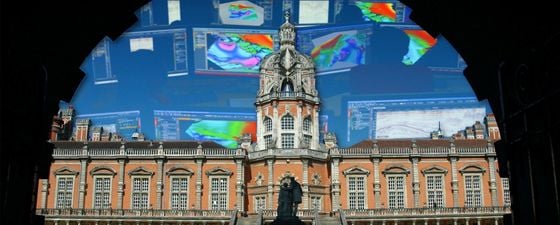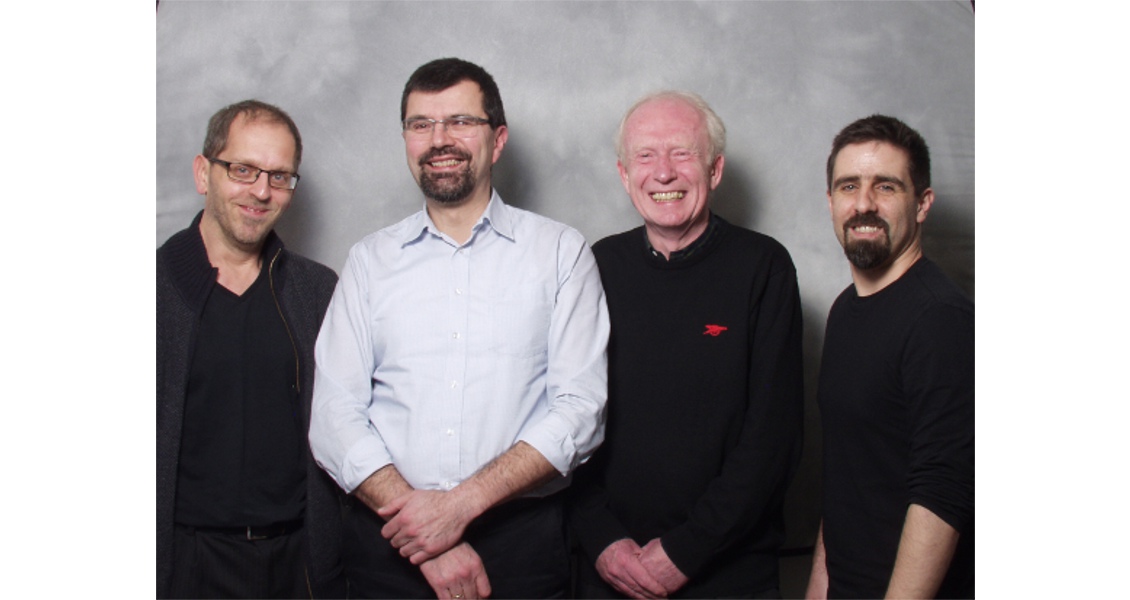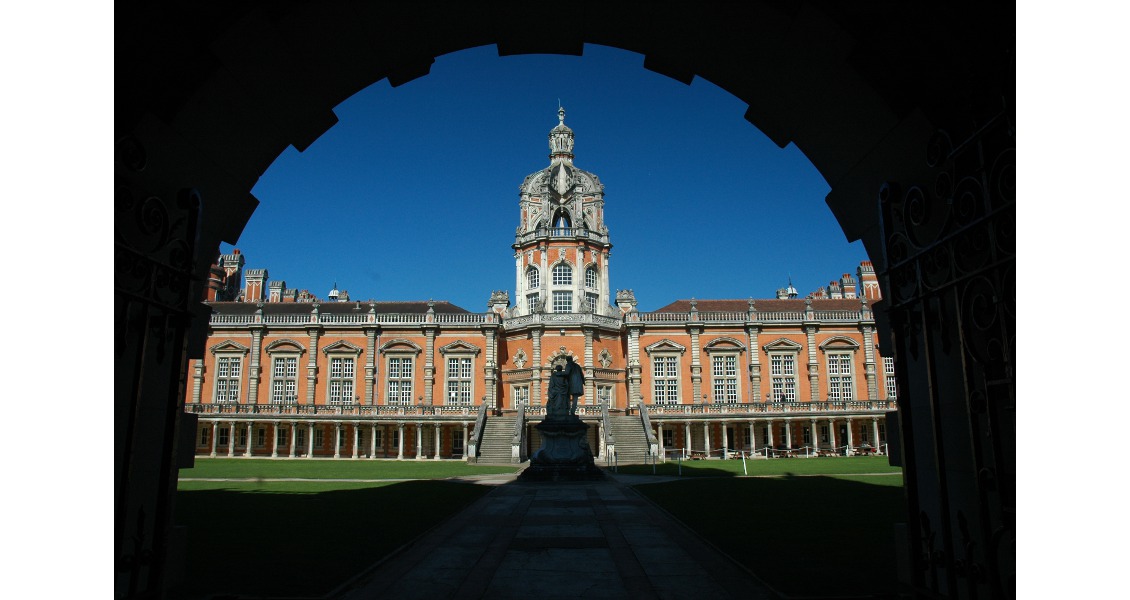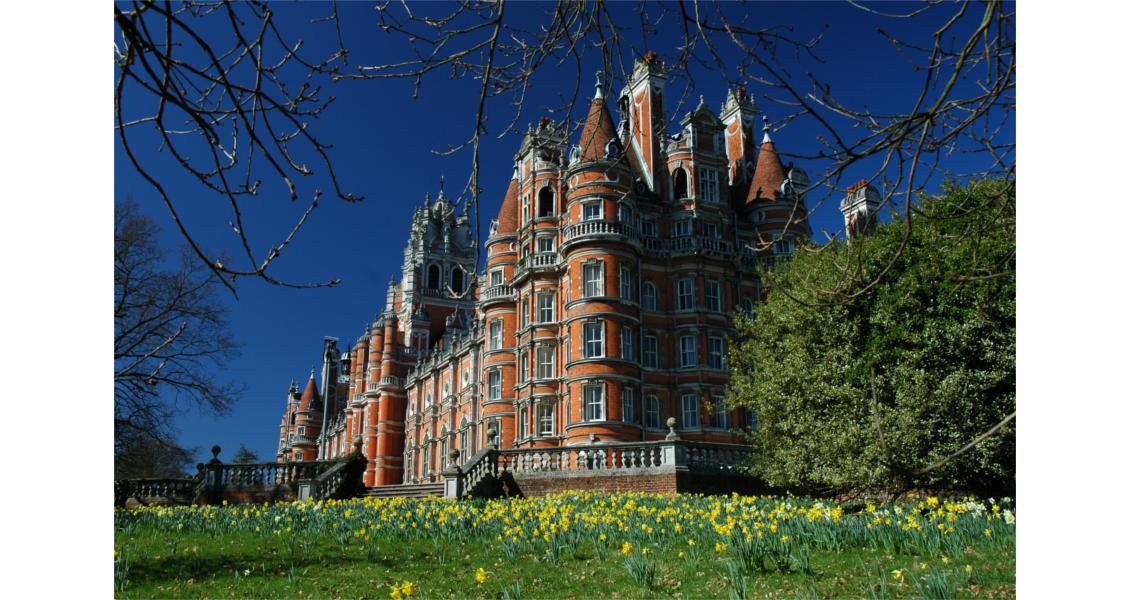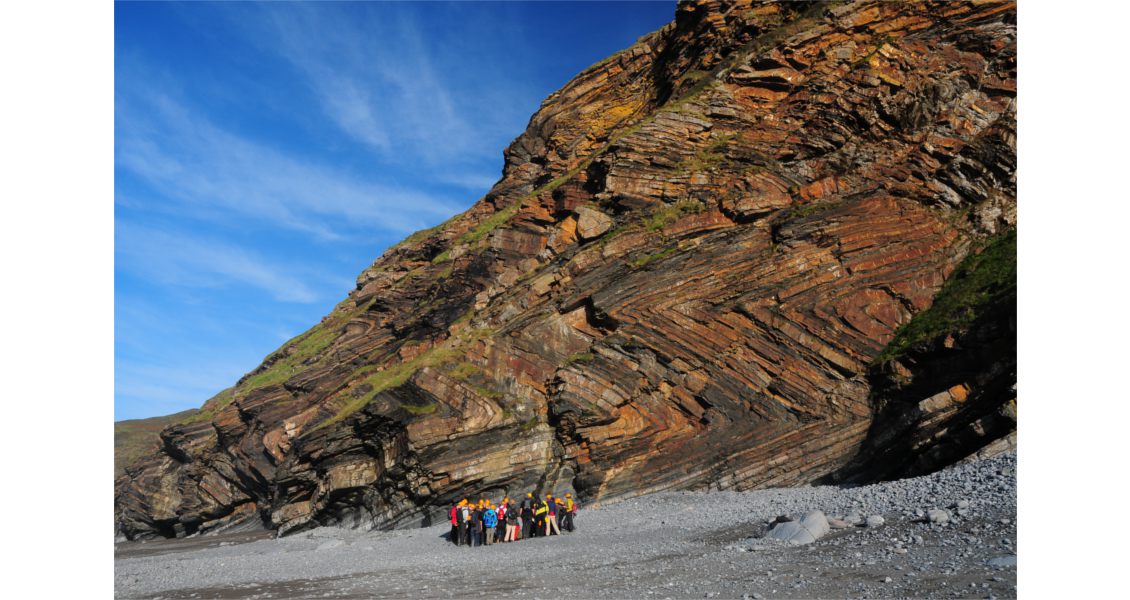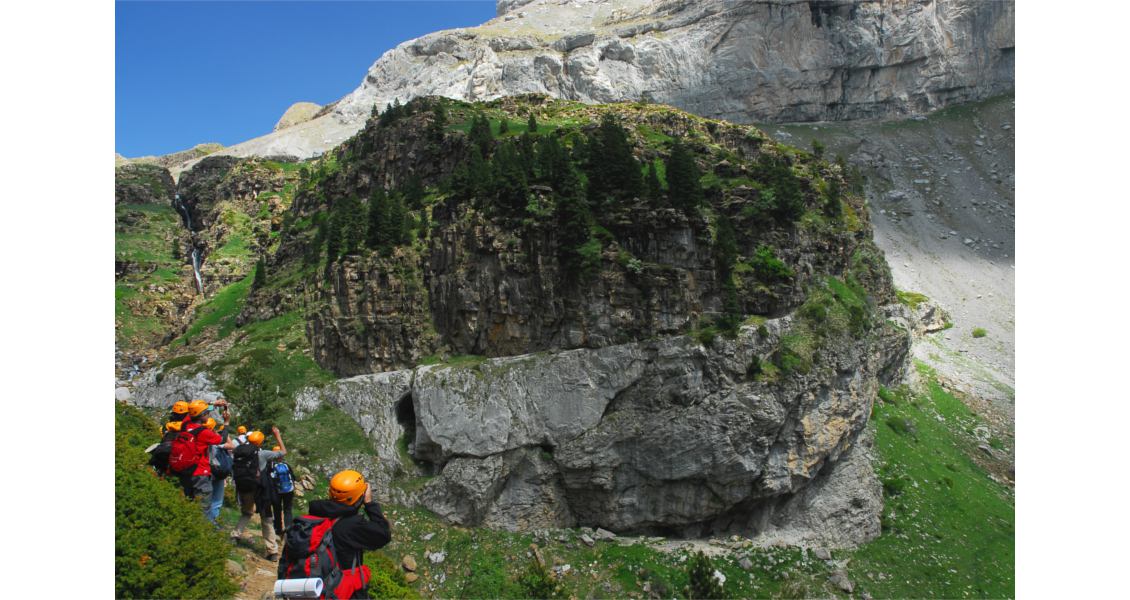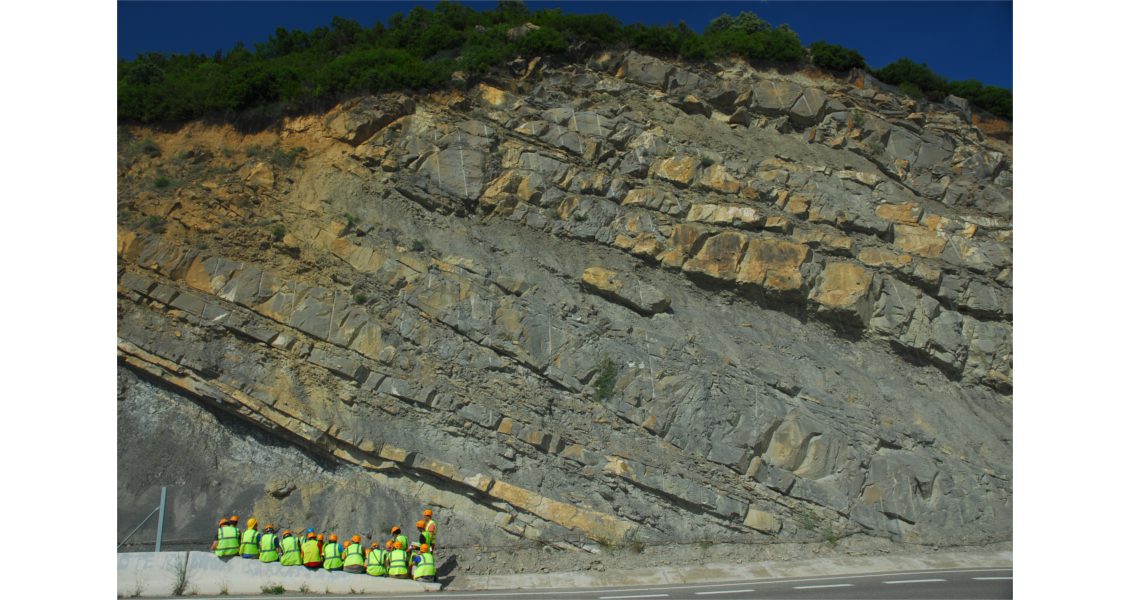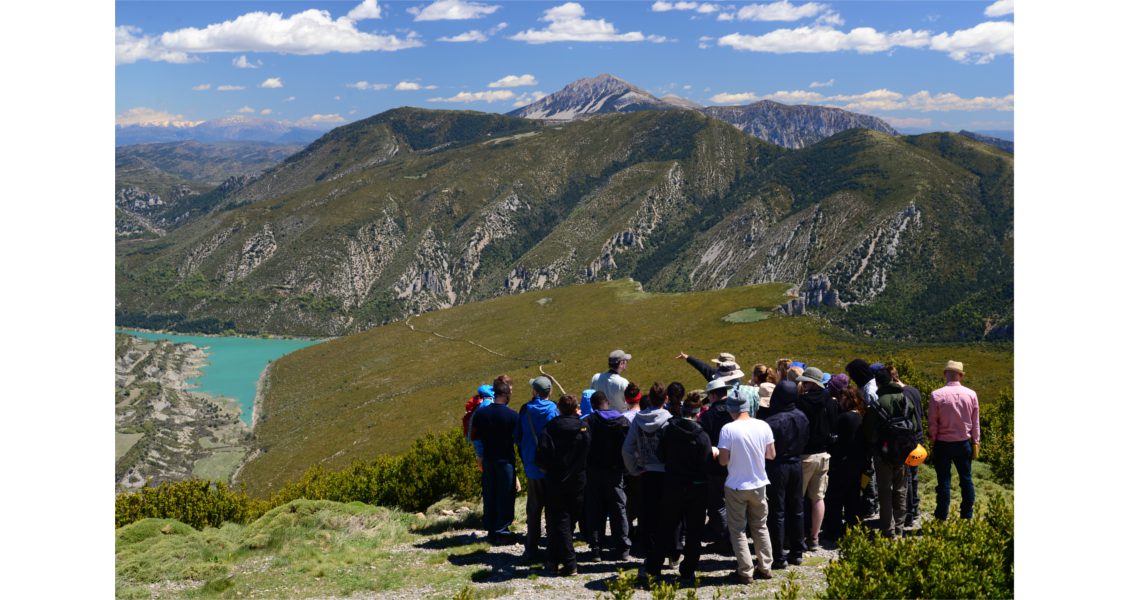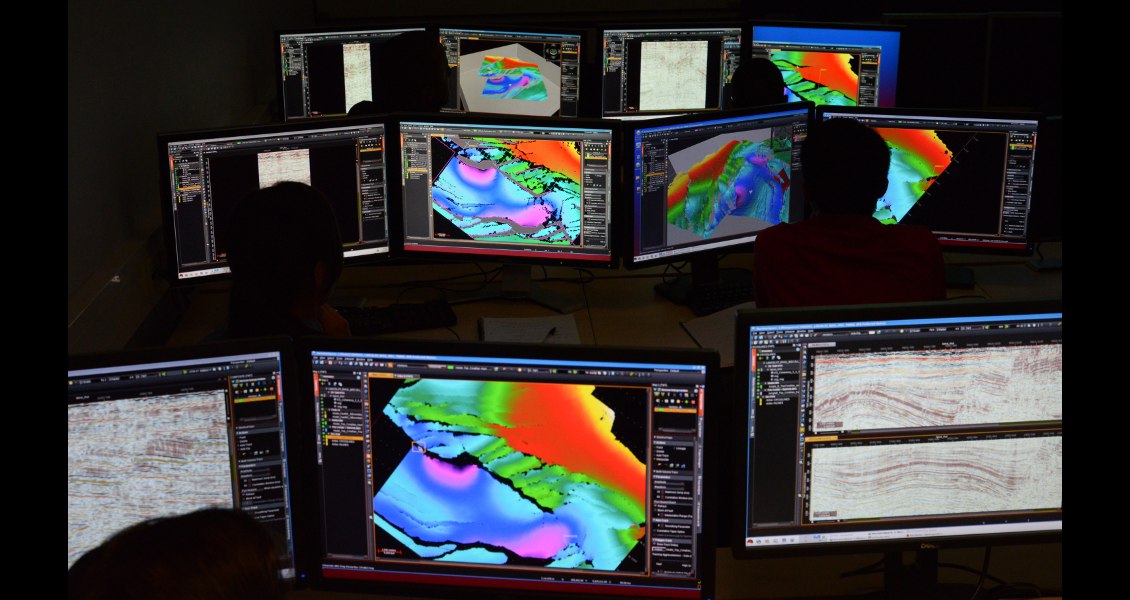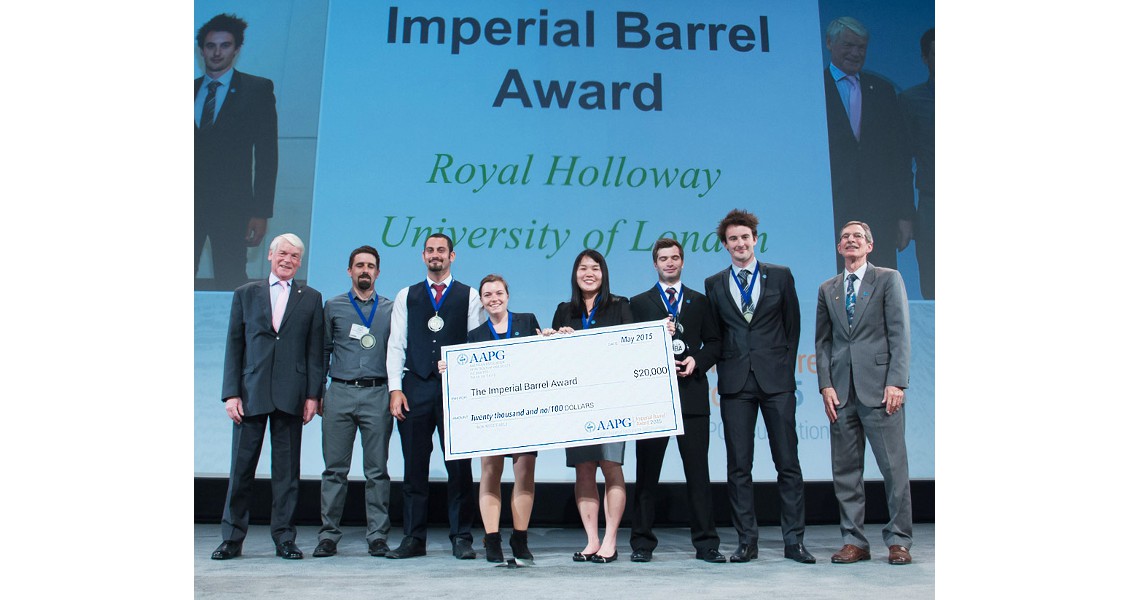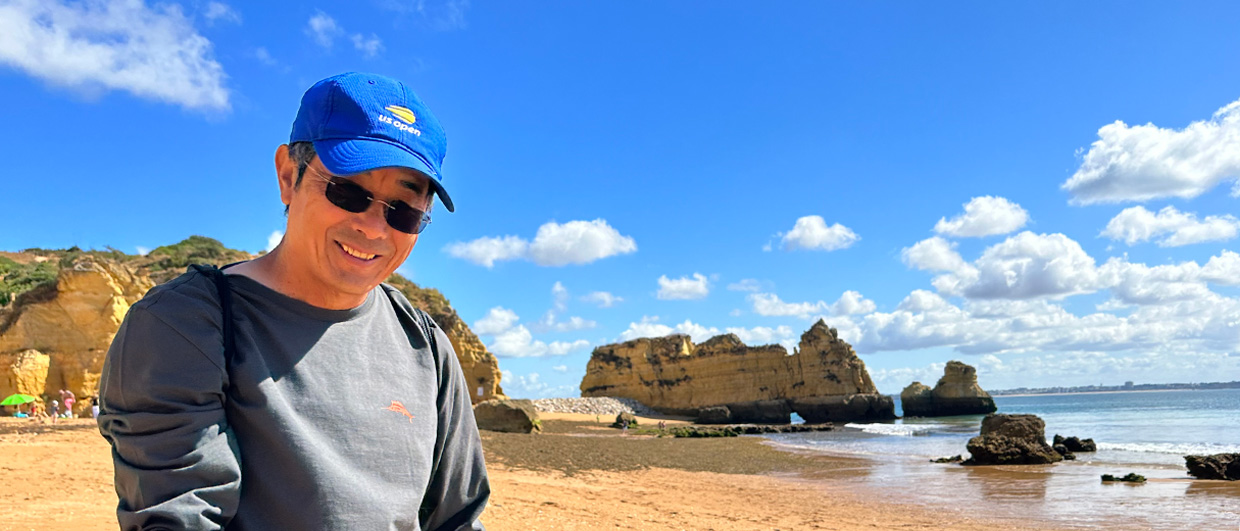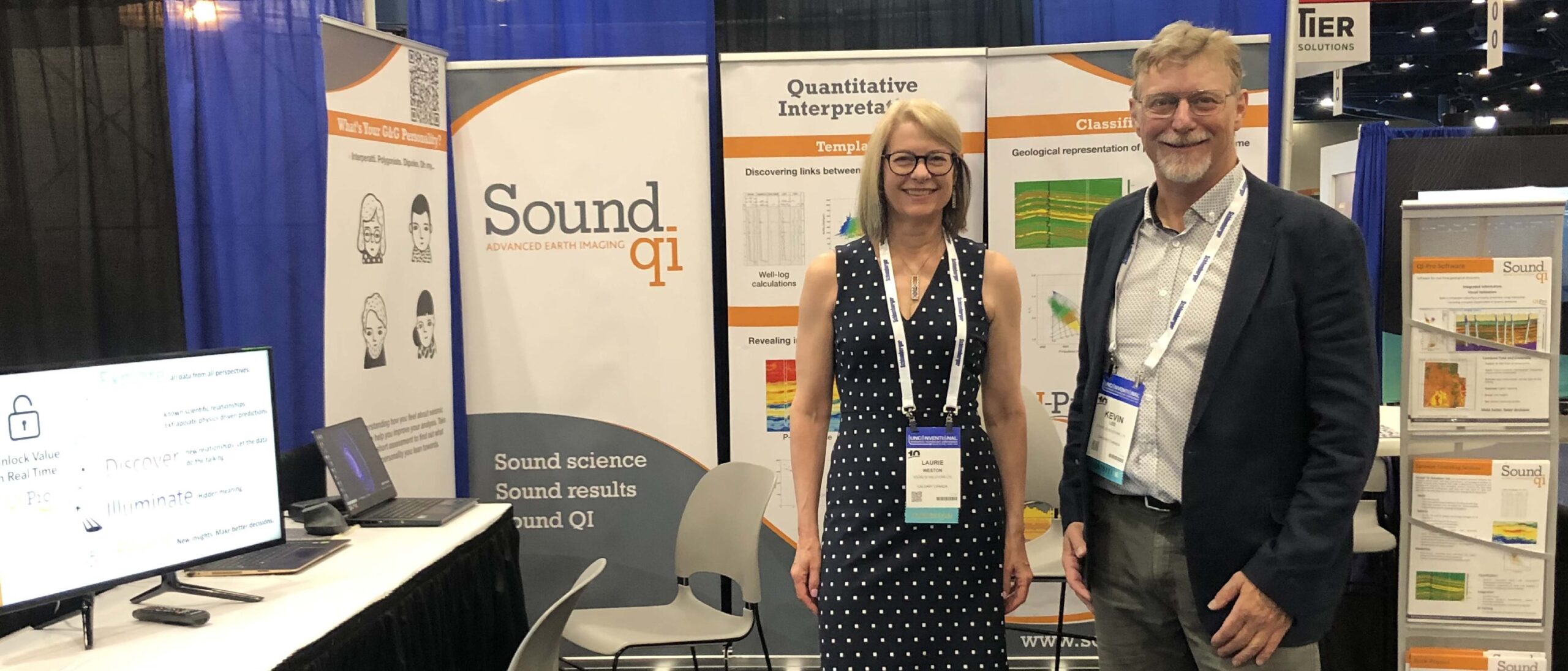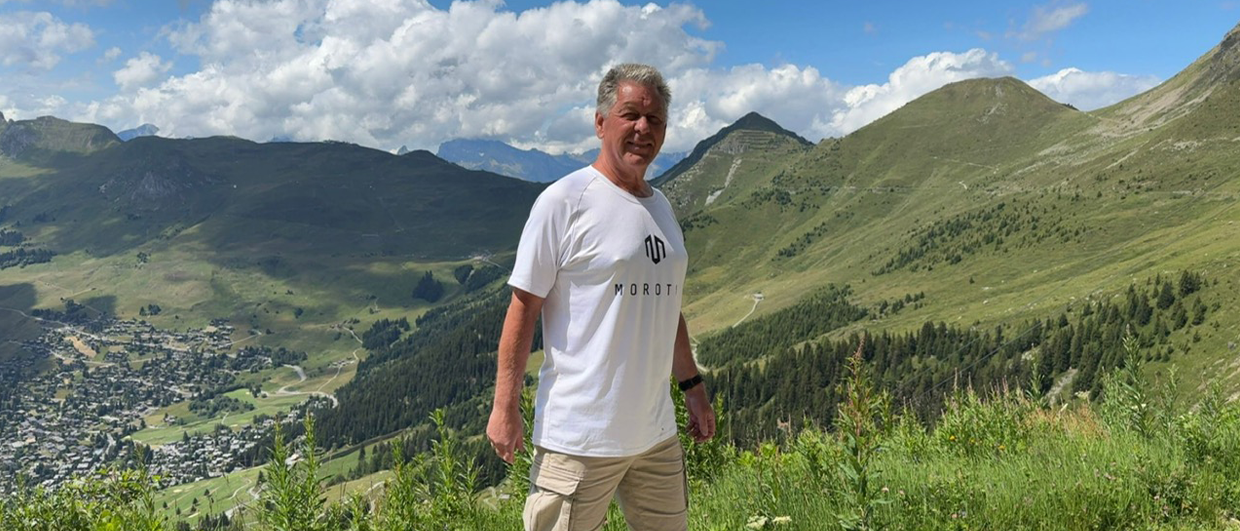Royal Holloway, University of London (RHUL) recently celebrated 30 years of their M.Sc course in Petroleum Geoscience. To mark the occasion, they hosted a 30 year Celebratory Symposium where alumni, as well as past and present staff members, addressed the theme, “What I learnt during the MSc and what I have learnt since”. RHUL also celebrated the 30 years by becoming world champions in the AAPG 2015 Imperial Barrel Award.
In light of this milestone, we asked RHUL’s Professor Bernie Vining, Dr Nic Scarselli, Dr Jürgen Adam and Professor Pete Burgess to look back over the past 30 years and take a look forward to what the future may hold.
What key elements give a successful teaching programme global appeal?
We believed that three key elements define a successful petroleum-related teaching programme.
The first one is to expose students to rocks. You cannot provide world-class geology training without field trips to world-acclaimed outcrops where elementary concepts of petroleum geology can be directly observed and understood. The second element is a strong link between teaching and research, where research is the main driving factor that inspires lecturing to students. The third key element is to position our students at the forefront of technology in hydrocarbon exploration.
These elements are at the core of our RHUL Masters programme, which is globally renowned for regional basin analysis. Our students enjoy multiple field trips during their curriculum including the Pyrenees field trip where spectacular outcrops demonstrate tectonic and sedimentary processes at a basinal scale, and also the Dorset trip where the students work in teams to generate a prospect, investigating the play elements of reservoir, source, trap and seal and geological timing, performing volumetric estimates, uncertainty and risk analyses and then addressing the commercial considerations.
As for research, our highly acclaimed research consortia like the Fault Dynamics Research Group, Compass and SE Asia Research Group have for over 20 years produced high quality studies on regional tectonic, structural geology and basin analysis.
What part does the petroleum industry play in your training programme?
We have an Industry Advisory Board of 24 companies from across the spectrum, including super-majors, independents, service companies and consultancies, which gives guidance as to what the industry is looking for both in teaching and research. To ensure our students learn industry-standard practices and skills, industry experts contribute with lectures and short courses on a range of subjects, including subsurface evaluation, basin modelling, petroleum systems and economics.
During an industry downturn like this, what advice would you give to students contemplating a career in petroleum geoscience?
Our key message is to keep optimistic! Remember, downturns are followed by upturns; it’s all in the timing. In the interim we advise our students to look at ways in which they can distinguish themselves from others. For example, in addition to their excellent academic record, in what other interests have they excelled? Demonstrate, by example, all the key talents and qualities the industry looks for: leadership, initiative, motivation, team-working, integrity, professionalism, enthusiasm.
How do you see petroleum geoscience training changing in the next 30 years?
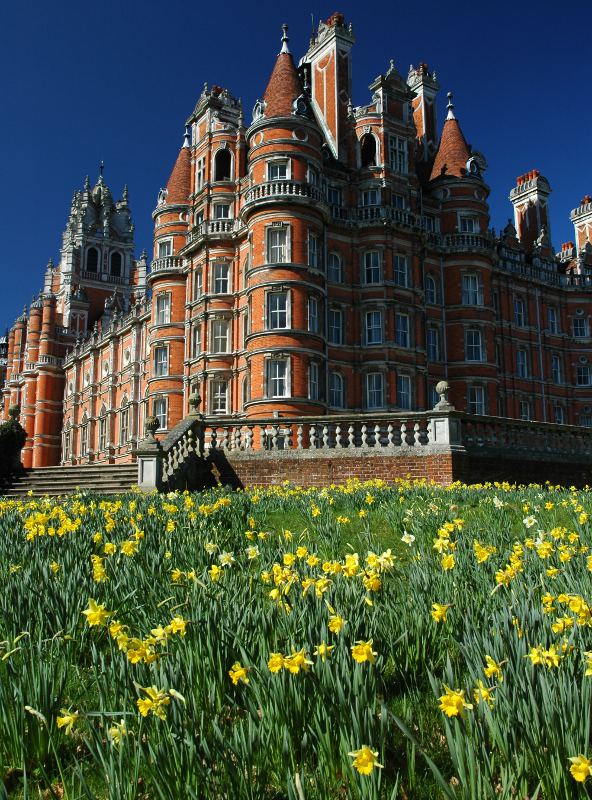 The Founders Building in spring. (Source: Kevin D’Souza, RHUL)That’s a really good question and one we are continually asking ourselves. To quote from Winston Churchill: “The farther backward you can look, the farther forward you are likely to see”! As we’ve mentioned, Royal Holloway is celebrating 30 years of its Masters programme in petroleum geoscience. As part of the celebrations we held a symposium that included presentations from alumni and staff from over the decades. It was really interesting looking back to find that many of the founding principles of the course are still very important today. These include holding an annual symposium where students make presentations, reinforcing the need for good communication skills; the brand of regional basin analysis; group projects using industry datasets; even visiting the same field areas of Dorset and the Pyrenees!
The Founders Building in spring. (Source: Kevin D’Souza, RHUL)That’s a really good question and one we are continually asking ourselves. To quote from Winston Churchill: “The farther backward you can look, the farther forward you are likely to see”! As we’ve mentioned, Royal Holloway is celebrating 30 years of its Masters programme in petroleum geoscience. As part of the celebrations we held a symposium that included presentations from alumni and staff from over the decades. It was really interesting looking back to find that many of the founding principles of the course are still very important today. These include holding an annual symposium where students make presentations, reinforcing the need for good communication skills; the brand of regional basin analysis; group projects using industry datasets; even visiting the same field areas of Dorset and the Pyrenees!
This is a constantly evolving industry, and the teaching programme needs to maintain flexibility, recognising that it takes time to change and that a strong link to research programmes in the Department is essential. We want our programme to shape future geoscientists with a broad and yet fundamental set of core skills such as structural geology, sedimentology and geophysical analysis, which will be always relevant as the industry develops.
What are the future trends in your crystal ball?
‘Keeping a finger on the pulse’ of future industry trends is very important and this is where we rely on the insights and advice of the Industry Advisory Board. There are two certainties: firstly, petroleum geoscience will continue to have huge societal impact over the next 30 years. Petroleum products and bi-products will continue to be important facets of everyday life. Secondly, change will be continuous and frequent; the challenge is to successfully manage it.
What other trends are in our crystal ball? The need for capability-building in many parts of the world is on the increase. Distance learning will play an important role. A strong tie to research, in particular embracing an integrated, multi-disciplinary approach, in a global context, will continue to underpin teaching. In the end though, it’s a people thing; students and teachers, with passion and enthusiasm, producing high quality science in an environment that nurtures creativity – as evidenced last year, when RHUL won the AAPG Imperial Barrel Award!

